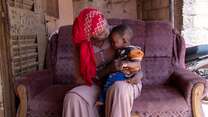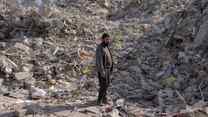The International Rescue Committee commissioned Strategy Impact Advisors to build a return on investment (ROI) model to estimate whether or not a business case exists for expanded coverage of digital financial services in crisis-prone areas (Lebanon and the Philippines). This analysis provides insights into: 1.) what DFS providers can expect as a return on investment in sufficient infrastructure and services for the delivery of cash assistance during emergencies; and 2.) how their proactive engagement with humanitarian organizations can improve their short and long-term revenue streams. This analysis is guided by two key questions:
- What is the projected demand for cash transfer services resulting from humanitarian crises in the Philippines and Lebanon?
- What are the potential revenues and costs associated with serving that demand for DFS providers in the Philippines and Lebanon?
By modeling the potential ROI for DFS providers from meeting aggregate humanitarian demand, this paper aims to motivate greater investment in expansion of digital financial services in areas vulnerable to emergencies, incentivize humanitarian-private sector cooperation prior to crises, and encourage development and humanitarian actors to coordinate their respective DFS-related initiatives.



